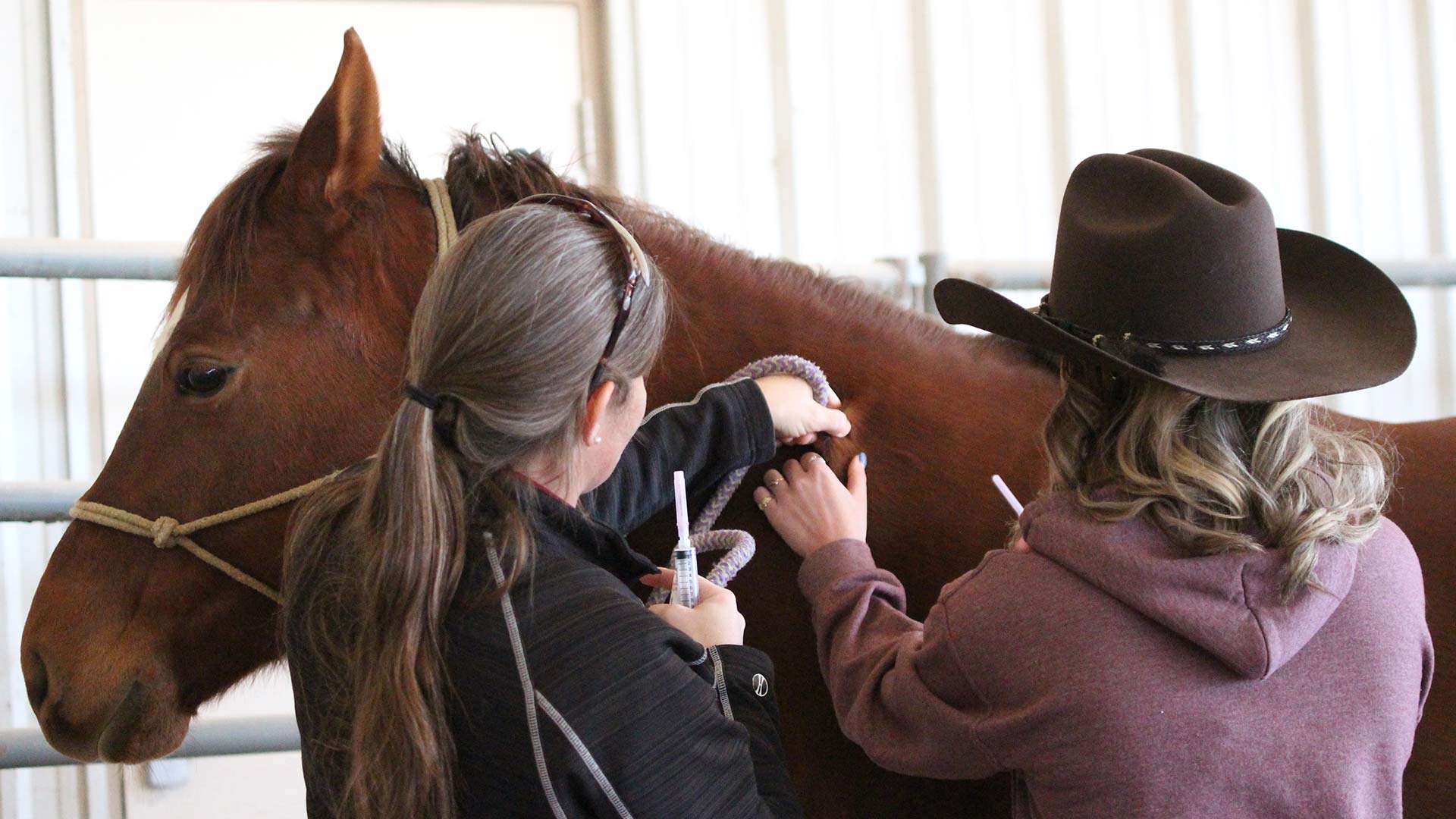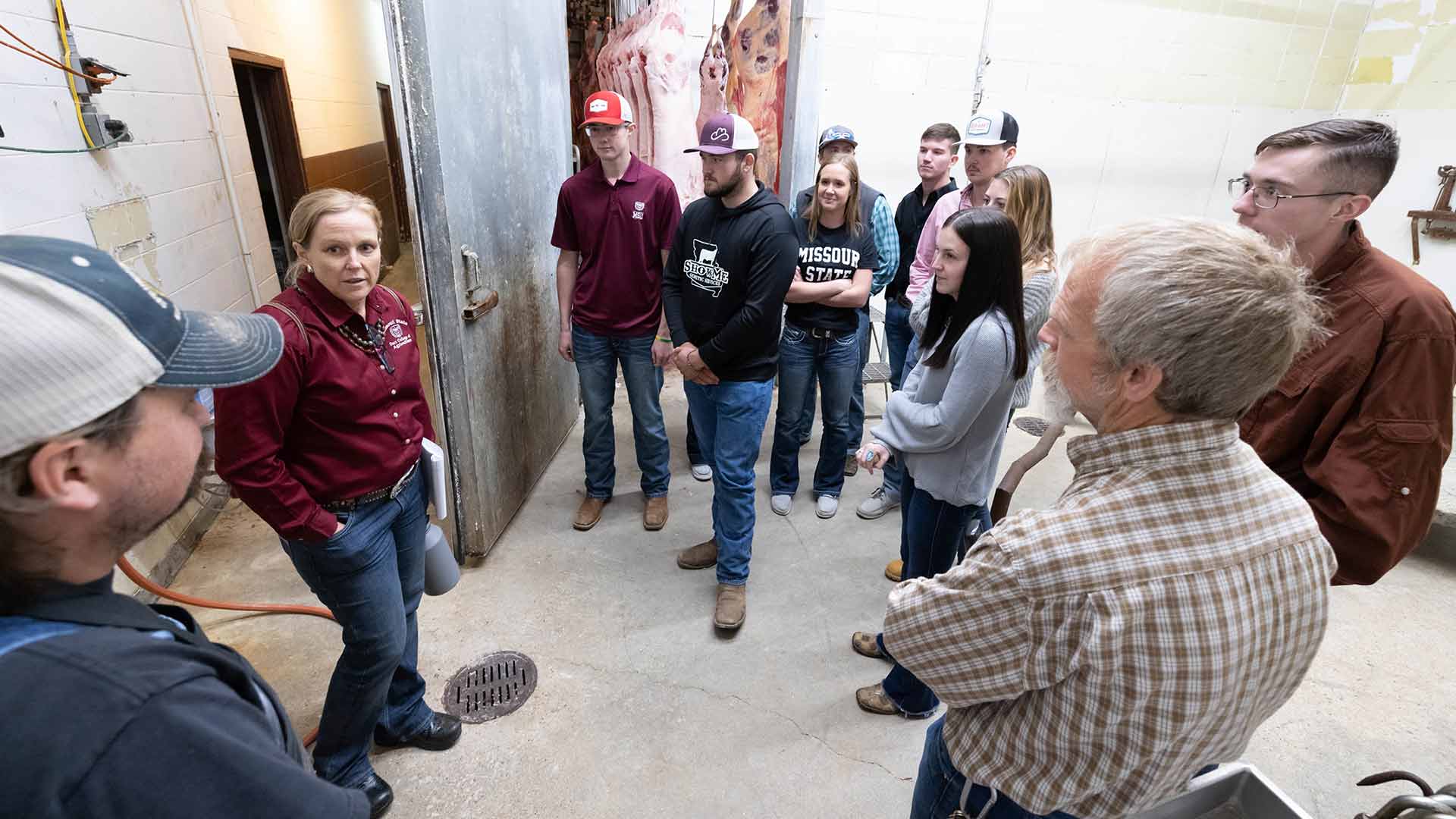
Imagine a dynamic career where you work around animals.
In the animal science field, many careers involve this hands-on work.

Imagine a dynamic career where you work around animals.
In the animal science field, many careers involve this hands-on work.
You’re trained in animal behavior, genetics, nutrition and physiology.
You explore the best ways to use animals for food, labor, products and companionship.
You can work alongside animals at places like farms/ranches, clinics, zoos, food processing plants and more.
Prefer a hands-off role? Pursue a related career in animal management, sales and production.
Jobs are on the rise. You can find a career that fits your interests, lifestyle and financial goals.
6%

Your degree covers a lot of areas – agriculture, biology, science, math, business and more.
With a strong set of skills, you will be qualified to work in a wide range of areas.
Want to stand out from the herd?
You’re also equipped to pursue graduate school and earn a master’s degree or eventual PhD.
At MSU, you can focus your master's degree in agriculture on animal science.
Explore a master's degree in agriculture
If you’re an aspiring veterinarian, our pre-vet program prepares you for admission into veterinary school.
When you finish, you’ll have a bachelor’s degree in animal science and a path into veterinary school, where you can earn a Doctor of Veterinary Medicine (DVM) degree.